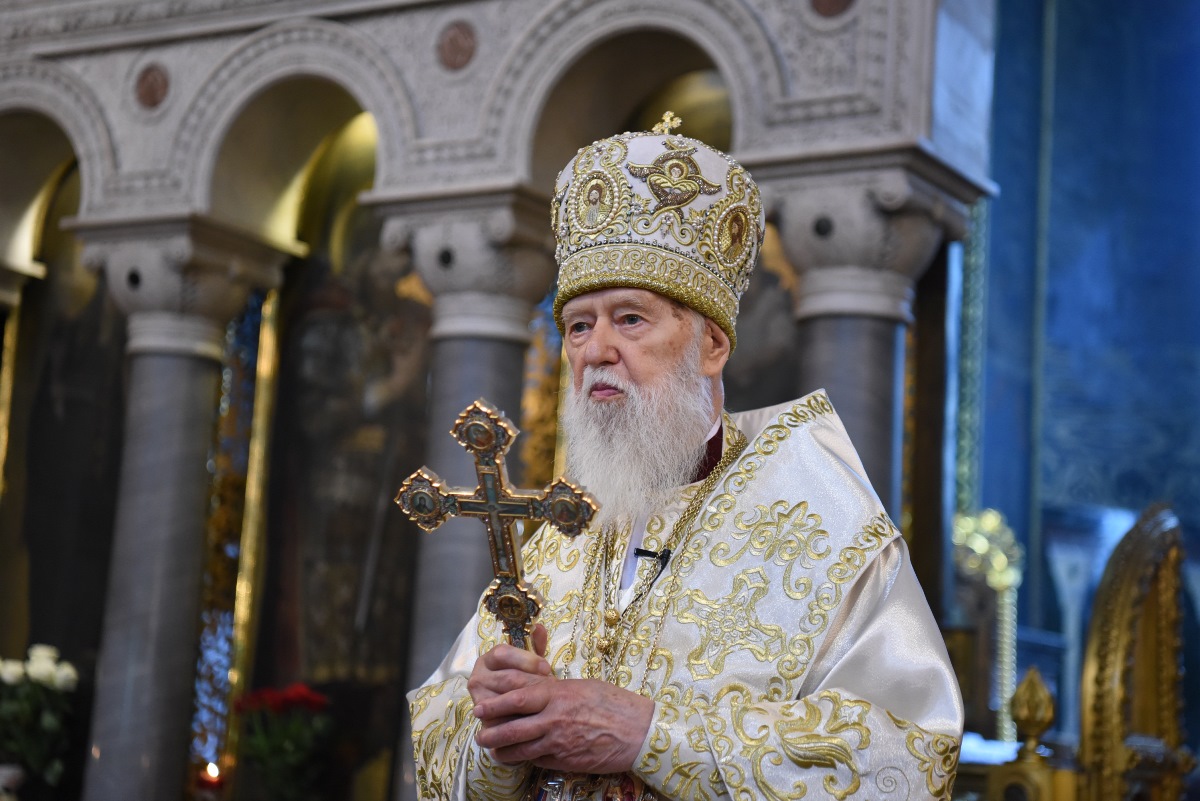His Holiness Patriarch and Holodomor witness Filaret is celebrating his 95th birthday
Today, 23 January, is the 95th anniversary of the Holodomor witness, His Holiness Patriarch of Kyiv and All Rus-Ukraine Filaret.
He came into this world on January 23, 1929, in a village with the symbolic name Blahodatne (in English, the name means “the blessed one” ) in the Donetsk region. In his early childhood, Mykhailo Denysenko survived the Holodomor, during which he lost his grandfather. Later – the Second World War, from the fronts of which his father did not return. And it was this loss that became key in choosing a further life path and conversion to God. At the age of 21, Mykhailo Denysenko took monastic vows and the new name Filaret.
Many years later, thanks to his position and actions, the young Ukrainian state received the Ukrainian Church, which all these years was and is a spiritual pillar that holds our statehood. We remember and are grateful for that.
In 2018, His Holiness shared his memories of his childhood experiences with the Holodomor Museum (the record is published on our “Testimony” resource), which were included in the “Guardians of Truth” photo exhibition.
“There was a harvest in the 32nd year. But in the 33rd year and the 32nd, they went around the village and took away bread. And soldiers, Red Guards armed with rifles and bayonets, searched for hidden grain in our garden. If – I thought about it later – it was an ordinary hunger, then would bread be taken away from people?! So that they would die? So they did it intentionally so that people would die. Not because the people did not have bread – they had bread! However, this bread was taken away! And they didn’t just take it away, they searched for it so people couldn’t hide it!
I know from my parents’ stories that many people in the village were dekulakized and sent to Siberia. There was no resistance, because the Red Army men, armed… What kind of resistance could there be?
My father worked at a cement plant near the village. At this factory, they did not give bread to the workers. But in the mines – they gave. And that’s why my father left the cement plant and moved with his family to the mine in 1933 because they gave bread there. My father was given 400 grams, and we (we were three brothers) received 200 grams each. And grandfather, who was with us, was not given bread. Mother was given, but grandfather was not. So the grandfather died of hunger because there was nothing to eat. And my grandmother stayed in the village and she survived because she had a cow and vegetables.
Then I learned that Ukrainians went to Tashkent for bread, but on returning to Ukraine, they were not allowed to take bread to Ukraine. This is also evidence of the artificial destruction of the people.
There is a lot of evidence that this was an intentional extermination of the Ukrainian population. Why Ukrainian? Why were the cement workers not given bread at the cement plant? However, at the mine, the workers were given bread. Since Ukrainians from the village worked at the plant, and Russians, who came from Russia to work – at the mines, that is why they received bread. So, if it was only about the [extermination] of the farmers, then the plant would have given bread to the workers, but they didn’t give it to them, but they gave it to the Russians.”
“We should be a strong state, then there will be no genocide. And when we are slaves, they will do whatever they want to with us. And when we are strong, they won’t do anything to us. What does Ukraine need? Unity of the entire population of Ukraine. Unity will lead to the strength of the state,” Patriarch Filaret concluded. His words do not lose their relevance even today.
We are congratulating His Holiness Patriarch on his jubilee and wish the Lord’s blessing, patience in his high service, and many good years!
Photo – Facebook page of Patriarch Filaret
